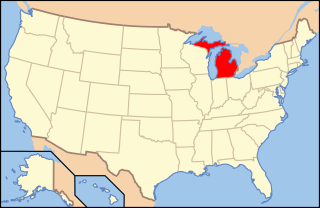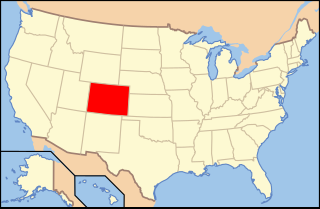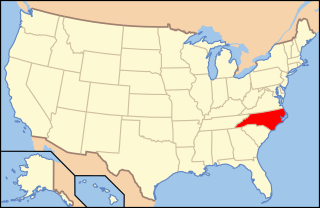Related Research Articles
Romer v. Evans, 517 U.S. 620 (1996), is a landmark United States Supreme Court case dealing with sexual orientation and state laws. It was the first Supreme Court case to address gay rights since Bowers v. Hardwick (1986), when the Court had held that laws criminalizing sodomy were constitutional.

Oregon Ballot Measure 9 was a 1992 citizens' initiative concerning LGBT rights in the state of Oregon. It sought to amend the Oregon Constitution to prohibit anti-discrimination laws regarding sexual orientation and to declare homosexuality to be "abnormal, wrong, unnatural, and perverse". Listing homosexuality alongside pedophilia and sadism and masochism, it has been described as one of the harshest anti-gay measures presented to voters in American history.
This is a list of notable events in the history of LGBT rights that took place in the year 1990.
This is a list of notable events in the history of LGBT rights that took place in the year 1996.
This is a list of notable events in the history of LGBT rights that took place in the year 1978.
This is a list of notable events in the history of LGBT rights that took place in the year 1993.
This is a list of notable events in the history of LGBT rights that took place in the year 1977.
This is a list of notable events in the history of LGBT rights that took place in the year 1995.
This is a list of notable events in the history of LGBT rights that took place in the year 2005.
The Oregon Citizens Alliance (OCA) was a conservative Christian political activist organization, founded by Lon Mabon in the U.S. state of Oregon. It was founded in 1986 as a vehicle to challenge then–U.S. Senator Bob Packwood in the Republican primaries, and was involved in Oregon politics from the late 1980s into the 1990s.

Colorado Amendment 43 was a referendum approved by the voters in 2006 that added a new section to Article II of the Colorado Constitution to define marriage in Colorado as only a union between one man and one woman. It passed with 56% of the vote.

Lesbian, gay, bisexual, and transgender (LGBTQ) people in the U.S. state of Michigan enjoy the same rights as non-LGBTQ people. Michigan in June 2024 was ranked "the most welcoming U.S. state for LGBT individuals". Same-sex sexual activity is legal in Michigan under the U.S. Supreme Court case Lawrence v. Texas, although the state legislature has not repealed its sodomy law. Same-sex marriage was legalised in accordance with 2015's Obergefell v. Hodges decision. Discrimination on the basis of both sexual orientation and gender identity is unlawful since July 2022, was re-affirmed by the Michigan Supreme Court - under and by a 1976 statewide law, that explicitly bans discrimination "on the basis of sex". The Michigan Civil Rights Commission have also ensured that members of the LGBT community are not discriminated against and are protected in the eyes of the law since 2018 and also legally upheld by the Michigan Supreme Court in 2022. In March 2023, a bill passed the Michigan Legislature by a majority vote - to formally codify both "sexual orientation and gender identity" anti-discrimination protections embedded within Michigan legislation. Michigan Governor Gretchen Whitmer signed the bill on March 16, 2023. In 2024, Michigan repealed “the last ban on commercial surrogacy within the US” - for individuals and couples and reformed the parentage laws, that acknowledges same sex couples and their families with children.

Lesbian, gay, bisexual, transgender, and queer (LGBTQ) people in the U.S. state of Colorado enjoy the same rights as non-LGBTQ people. Same-sex sexual activity has been legal in Colorado since 1972. Same-sex marriage has been recognized since October 2014, and the state enacted civil unions in 2013, which provide some of the rights and benefits of marriage. State law also prohibits discrimination on account of sexual orientation and gender identity in employment, housing and public accommodations and the use of conversion therapy on minors. In July 2020, Colorado became the 11th US state to abolish the gay panic defense.

Lesbian, gay, bisexual, transgender, and queer (LGBTQ) people in the U.S. state of North Carolina may face legal challenges not experienced by non-LGBTQ residents, or LGBT residents of other states with more liberal laws.

Lesbian, gay, bisexual, transgender, and queer (LGBTQ) rights in the U.S. state of Alaska have evolved significantly over the years. Since 1980, same-sex sexual conduct has been allowed, and same-sex couples can marry since October 2014. The state offers few legal protections against discrimination on the basis of sexual orientation and gender identity, leaving LGBTQ people vulnerable to discrimination in housing and public accommodations; however, the U.S. Supreme Court's ruling in Bostock v. Clayton County established that employment discrimination against LGBTQ people is illegal under federal law. In addition, four Alaskan cities, Anchorage, Juneau, Sitka and Ketchikan, representing about 46% of the state population, have passed discrimination protections for housing and public accommodations.
Jean Dubofsky is the first woman to become a Colorado Supreme Court Justice and a former Deputy Attorney General for Colorado. She was the lead attorney in Romer v. Evans, the case that overturned Colorado Amendment 2 at the US Supreme Court, resulting in a landmark ruling for LGBT rights in the United States.
Eugene Local Measure 51 was a 1978 petition calling for a referendum in Eugene, Oregon, to repeal Ordinance no. 18080, which prohibited sexual orientation discrimination in the city. VOICE created and campaigned for the petition, and gathered enough signatures to force a referendum vote. Measure 51 passed with 22,898 votes for and 13,427 against. This bill's passage garnered national attention, with Miami anti-gay activist Anita Bryant's telegram congratulating VOICE on the victory. It is the earliest example of 35 ballot measures to limit gay rights in Oregon.

Amendment 2 was a ballot measure approved by Colorado voters on November 3, 1992, simultaneously with the United States presidential election. The amendment prevented municipalities from enacting anti-discrimination laws protecting gay, lesbian, or bisexual people.
References
- ↑ The National Journal of Sexual Orientation Law
- ↑ Current Issues
- ↑ "ACLU of Oregon and the Civil Rights of Lesbian & Gay Oregonians" (PDF). American Civil Liberties Union of Oregon. Retrieved July 12, 2024.
- 1 2 3 Schmalz, Jeffrey (November 5, 1992). "THE 1992 ELECTIONS: THE STATES -- THE GAY ISSUES; Gay Areas Are Jubilant Over Clinton". The New York Times . Retrieved 25 June 2022.
- ↑ Romer v. Evans , 517 U.S. 620 (1996).
- ↑ ""Abnormal, Wrong, Unnatural and Perverse:" Taking the Measure (9) of the Closet". Archived from the original on 2006-10-12. Retrieved 2007-06-12.
- ↑ Walsh, Edward (October 30, 1993). "CHALLENGE TO GAY RIGHTS". The Washington Post . Retrieved 25 June 2022.